
Karma is among several Sanskrit words that have entered into mainstream English vocabulary. It is used widely to convey some sense of causality: some kind of connection between our actions and the situations we encounter in our life. Still, its precise meaning is remarkably difficult to pin down.
Intriguingly, such elusiveness is seen even in Sanskrit texts such as Bhagavad-gita. Therein, the word karma doesn’t have a precise definition; it embodies a spectrum of related meanings. Seen from the perspective of philosophy of language, such a spectrum is understandable because words are frequently multivalent. Multivalency applies especially to metaphysical terms such as karma, which refer to a network of concepts that are intricately intertwined with an underlying worldview that can’t be easily reduced to one simple definition.
With this background , let’s consider four meanings of the word ‘karma’:
- Action: In this sense, karma refers generically to action and is contrasted with inaction, which refers to not doing anything at all. E.g. “No one can live without doing karma” (Gita 03.05).
- The system of cosmic accountability that links actions with their results: In this sense, karma is often said to be an infallible form of universal justice that gives everyone the due results of their various actions. E.g. “No one can escape the law of karma; those who sow evil will reap evil.”
- Reaction: In this sense, karma refers to the results that come upon us due to our past actions. E.g. “I don’t know what karma I might have done to deserve such suffering.”
- Destiny: In this somewhat contemporary usage, karma connotes some situations that we encounter or even some dispositions that are innate to us. E.g. “I think coming to spiritual India was in my karma.”
***
03.05: Everyone is forced to act helplessly according to the qualities he has acquired from the modes of material nature; therefore no one can refrain from doing something, not even for a moment.
To know more about this verse, please click on the image

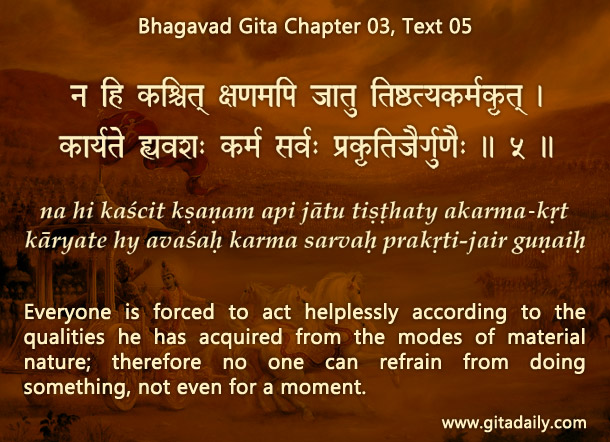

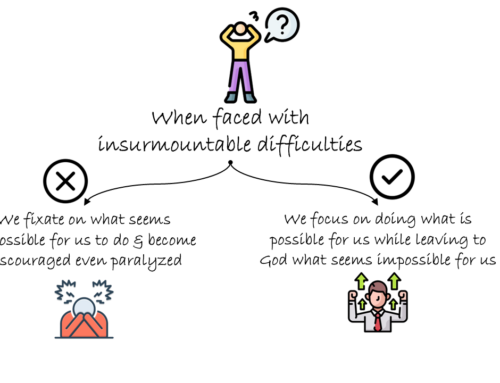

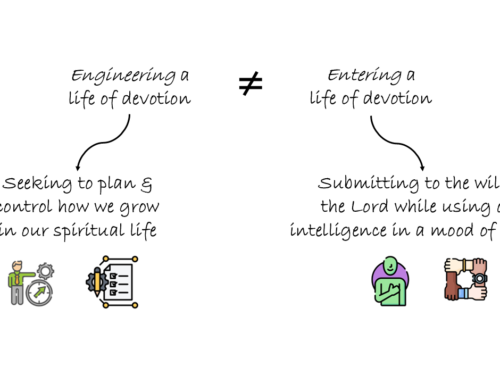

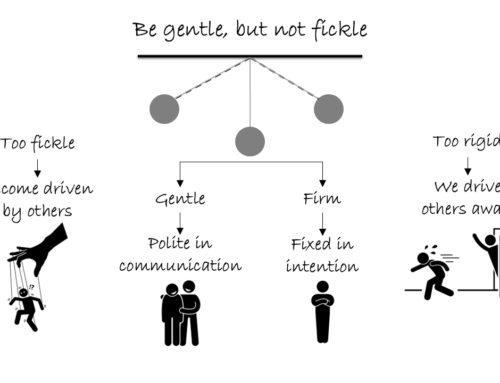
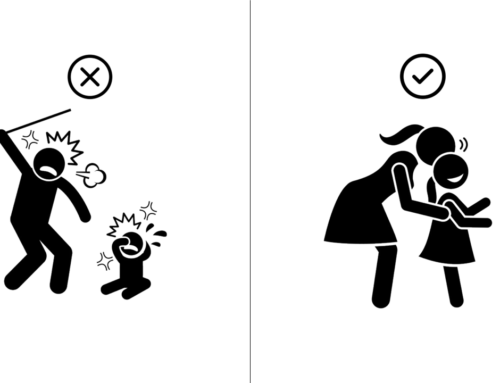
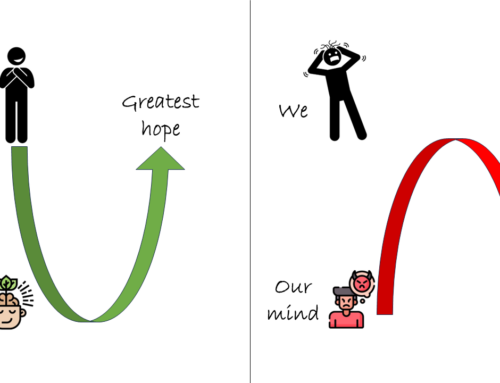

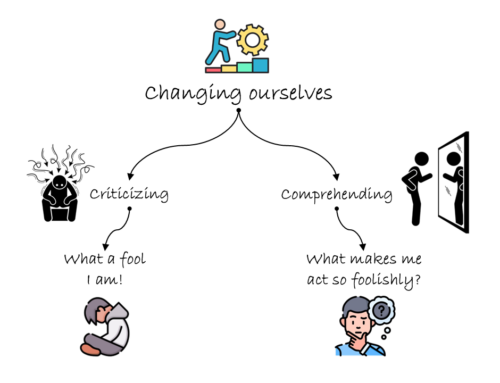
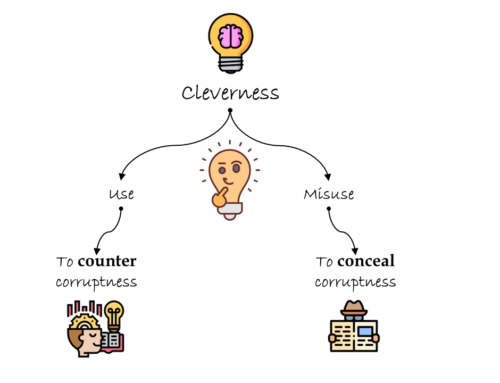

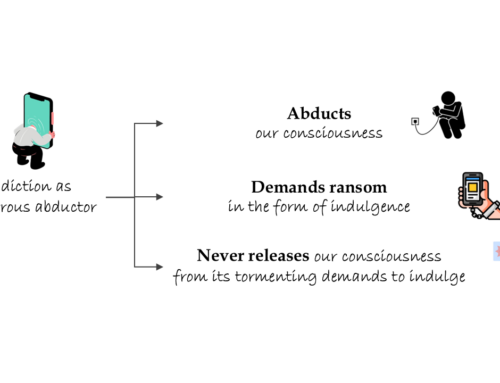
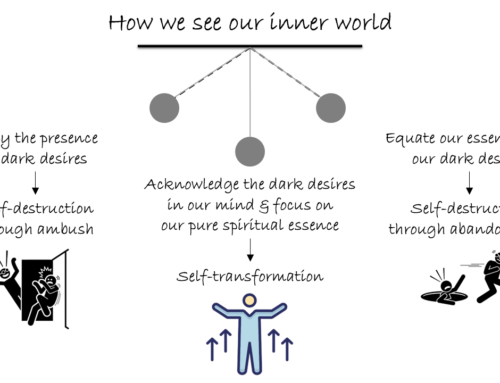
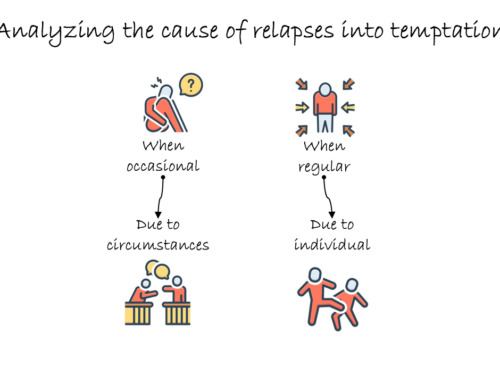

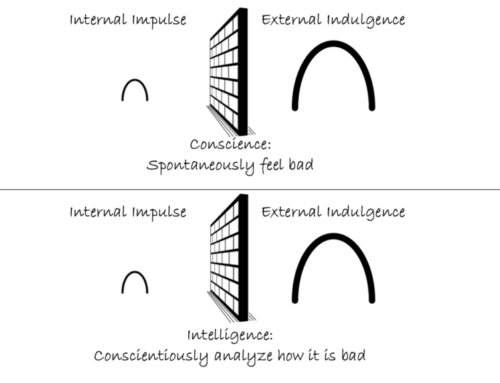
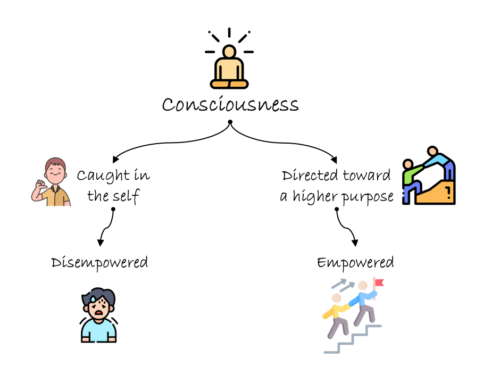
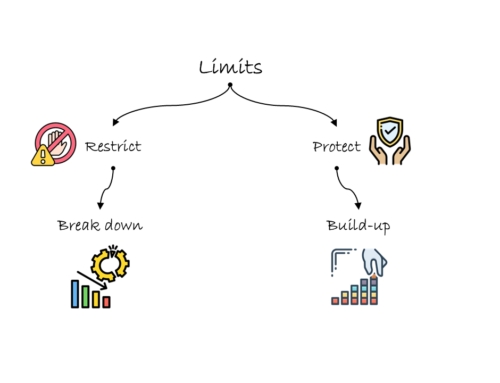
Nicely explained , looks simple but factually it is not easy to understand its meaning.
Thanks for your kind words.
Karma is your behavior in life